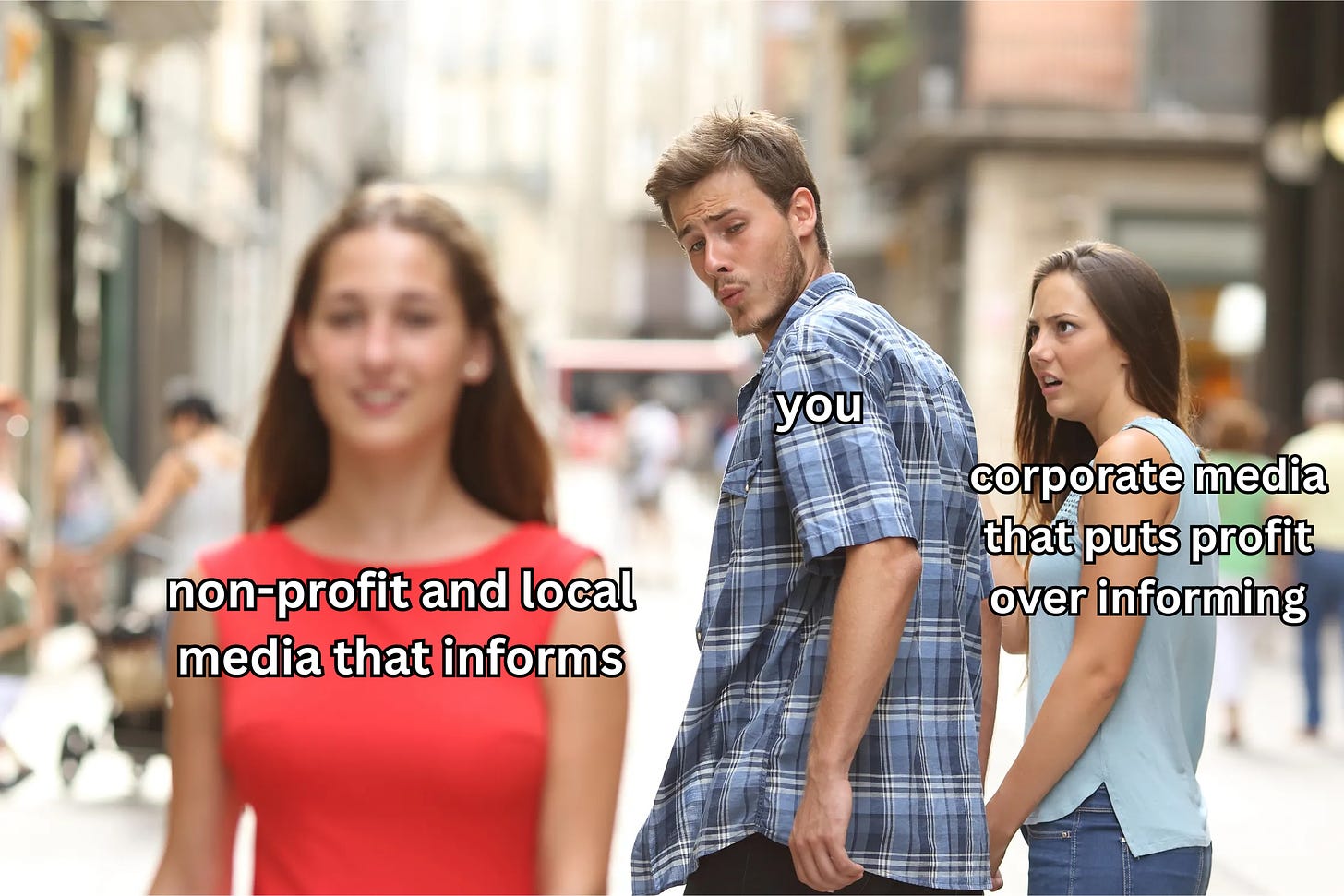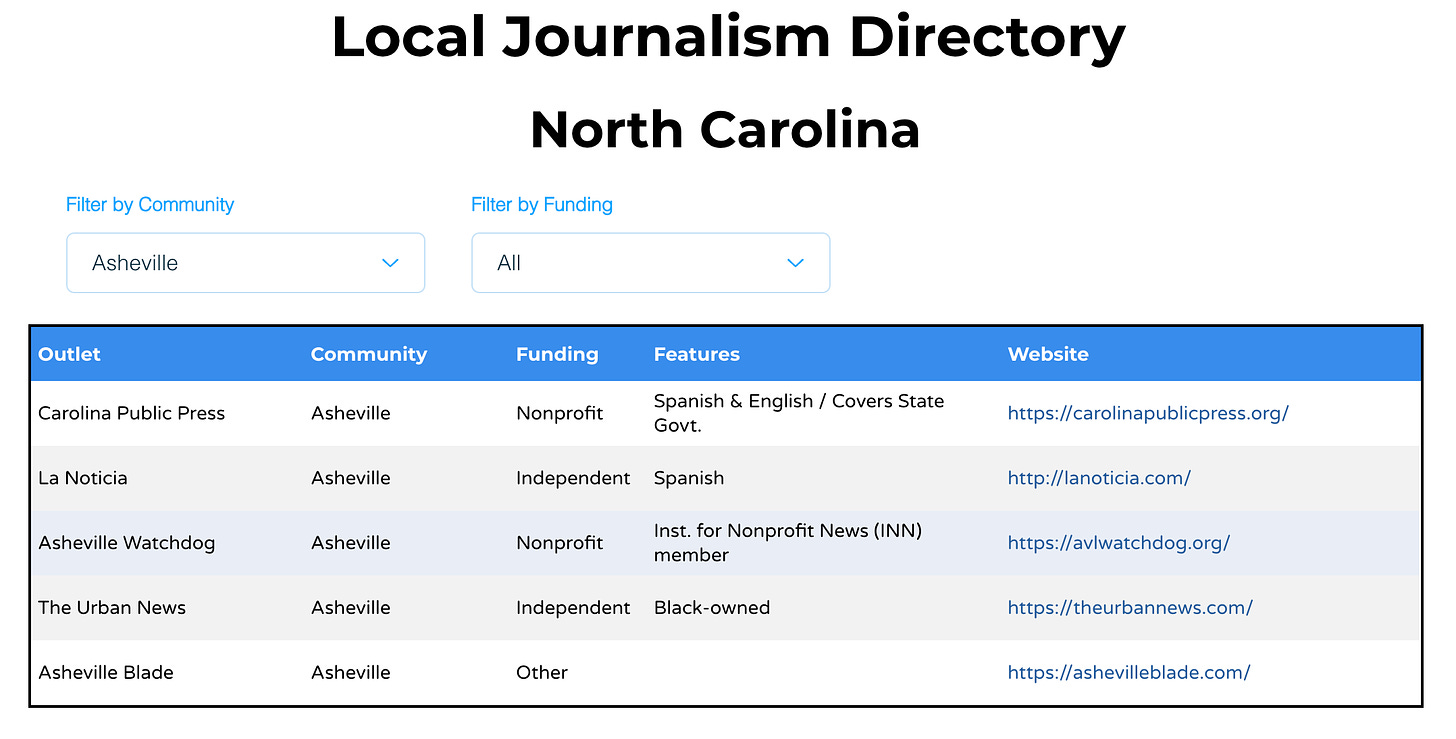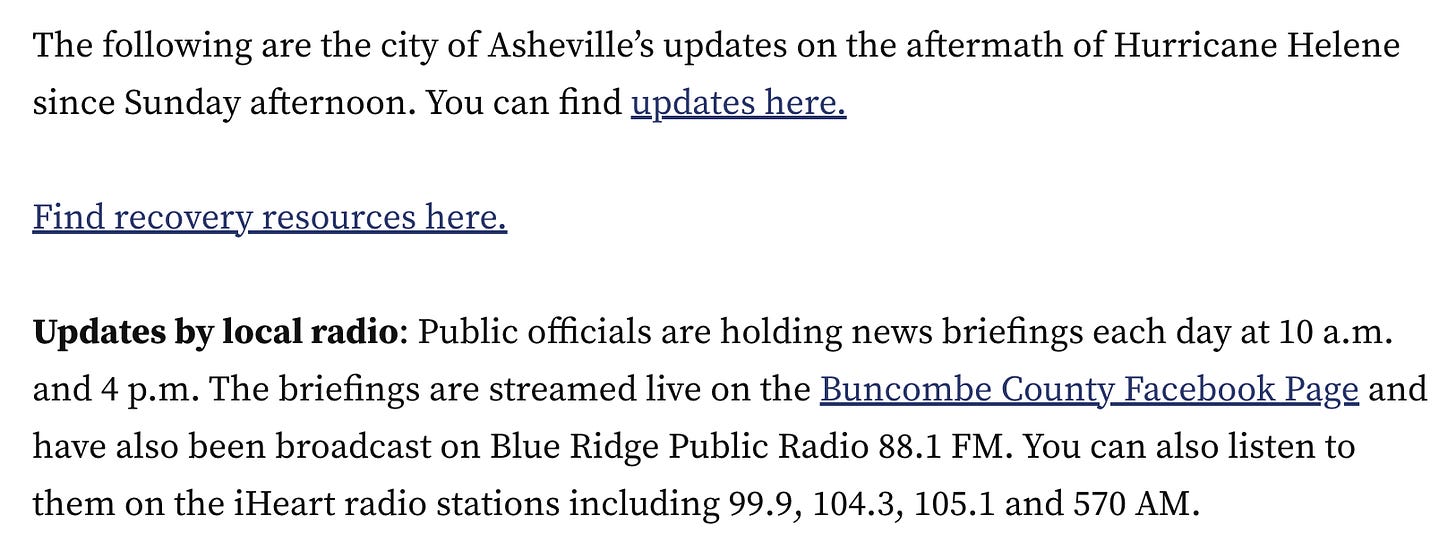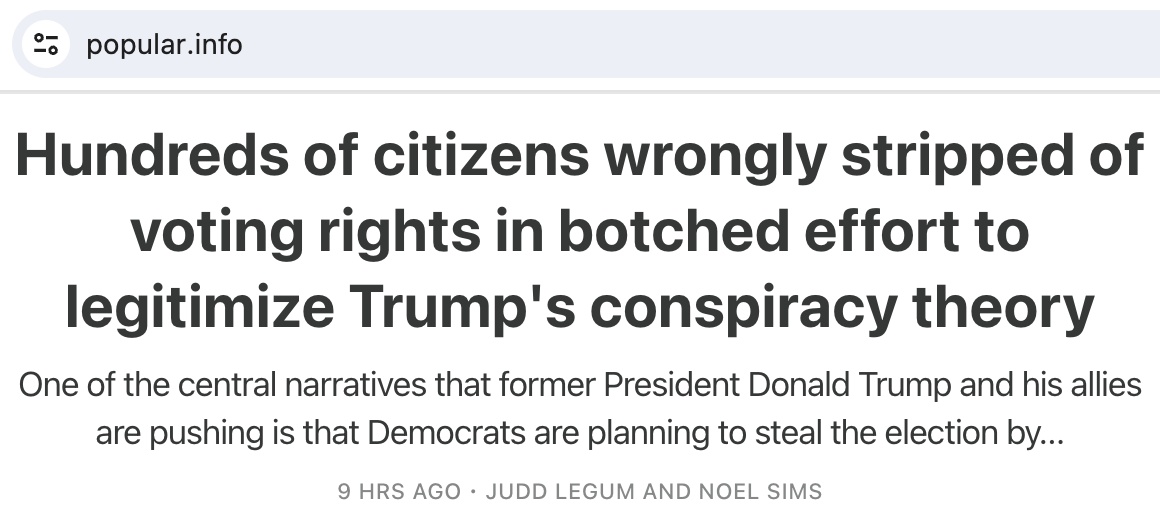Corporate Media Is Doing A Bad Job, Here's How To Find Alternatives
In the movement to replace our commercialized system for informing the public, your media choices can make a big difference
Corporate Media Isn’t Informing The Public
Crime is going down.
The public is convinced it is going up.
The US economy is faring better than any major nation.
Meanwhile, half of Americans believe unemployment is at a 50-year high, when it is actually at a 50-year low.
Everyone, and I mean everyone, is talking about the price of eggs but how many know that high egg prices are largely driven by decades of corporate greed?
National newsrooms aren’t informing the public with the prominence and frequency necessary for Americans to absorb basic realities about the state of their nation.
This is especially troubling in a major election year.
Corporate Media Could Pretty Easily Inform The Public
In a recent piece for his Press Watch website, Dan Froomkin offered great suggestions for how newsrooms could “actually inform the electorate in a constructive way.”
Identify a key issue. Explain what’s at stake. Discuss possible solutions. Then explain what the candidates are proposing.
Identify highly trafficked falsehoods. Then debunk them, trace their origin, and report on who’s spreading them and why.
Similarly, take a poll to determine what people believe about the current state of affairs in this country. Then identify those beliefs that are factually incorrect and commit to assiduously and repeatedly correcting the record until those numbers change.
Mainstream media’s obsession with airing “bothsides” of issues, even at those times when only one side is rooted in fact, leads to confusion and a general lack of understanding amongst the public.
We can have a media system where an over abundance of facts choke out the weeds of misinformation. And the change can start with you.
You Have Information Alternatives, Here’s How To Find Them
At its best, journalism allows us to participate in democracy by holding the powerful to account, exposing corruption, warning us of threats to our safety, exploring solutions to social problems, and connecting us to our communities.
We must replace our failing corporate media with the many outlets doing civic-minded journalism at the local, state, and national levels. The more we make the switch, the more we can shift mainstream journalism paradigms away from the status quo that’s keeping us in the dark. Here’s how to find better news.
State and Local
The Media and Democracy Project (MAD) has put together an expansive, searchable local journalism directory that covers all US states and territories. Want to keep track of the recovery efforts from Hurricane Helene in Asheville, NC? They’ve got you covered.
What happens at your state capitol likely has a bigger impact on your daily life than anything going on at the federal level. As newsrooms shutter across the country, it’s imperative that watchdogs continue to cover these seats of power. MAD’s local journalism directory features many outlets that provide state government coverage, including all newsrooms that are a part of the States Newsroom project and several that have partnered with the Solutions Journalism Network.
MAD regularly updates this project and by year’s end they project it will contain over 2,000 newsrooms. Search the directory here.
National
With legacy media corporations prioritizing frames and narratives that play up sensation, drama, and entertainment, finding national news outlets with a focus on informing the public is difficult.
I recommend canceling your legacy media subscriptions (e.g., New York Times, Washington Post) and using those funds to subscribe to the outlets below for national news. You’ll be taking an active step towards the proliferation of more pro-democracy journalism. I believe in you.
Beware Pink Slime
There are thousands of “pink slime” news sites spreading disinformation and propaganda. Pink slime sites “mimic local news providers but are highly partisan and tend to bury their deep ties to dark money, lobbying groups, and special interests.”
Here are some questions to ask when evaluating news sites for journalistic integrity:
Is there a byline? If there’s no staff reporter associated with the content, you could be reading generic AI generated content produced by scraping publicly available data, mixed with propaganda designed to manipulate opinion.
What does their “about us” section say? A newsroom doing journalism on behalf of its community will often feature an ‘about’ section that talks about its values. They might stress a commitment to reporting factual information. Pink slime sites can mimic trustworthy sites and say whatever they want, but often skimp on about sections. Pink slime site The Keystone Courier has no about section at all yet tells you twice on its landing page how much you can trust them. Generally, if a newsroom obsessively tells you how much you can trust them and then doesn’t back that up with reasons why you can trust them…you shouldn’t trust them. Looking at you, Epoch Times.
Do they make it easy to see who funds them? A trustworthy site will often openly address how they fund their operation.
Do they make corrections to stories? If an outlet issues corrections to stories, that’s a good sign they at least care about getting the record straight.
Your Media Choices Can Make A Huge Difference, Seriously
The information pumped through our phones, radios, TVs and computers shapes our culture, our beliefs, and our outcomes. When we click on a piece of information or engage with a news source, that choice is communicated back to a corporate and social media matrix incentivized to find and feed us more of the same. By choosing healthier sources of information we can have a profound effect on this system.
You are already doing little things in life because you hope they will make a difference to the health of the wider world. Maybe you donate to a certain aid organization, choose to drive an electric car, try not to eat beef, or you use reusable shopping bags. When it comes to your personal health, you pay a little extra attention, like when you read the labels at the grocery store. Making positive choices is a part of your life.
Being mindful of your personal media choices can have a real impact on society. Adding pro-democracy news sources to your media diet, and helping to fund them, increases your civic health (which has personal health benefits!) and promotes the generation of more healthy information.
So what are you waiting for? Start your journey towards healthier information today! Cancel those legacy media subscriptions and invest in journalists dedicated to informing you. In short order, a majority of Americans might even know basic facts about their country. Wouldn’t that be something?
Have suggestions?
What are some of your healthy news practices? Got a great outlet to share? Let everyone know in the comments.
“Public enlightenment is the forerunner of justice and the foundation of democracy.” When you subscribe, you're supporting the idea that we all deserve healthier information!
Click below to help me keep up the fight for better outcomes with healthier info!
With love,
Brian
Help spread this far and wide:
Like this post!
Re-stack it using the ♻️ button below!
Share this post on Substack and other social media sites:
Join the conversation, add your thoughts:















Thank You!
Talking Points Memo has been a reliable source for years.